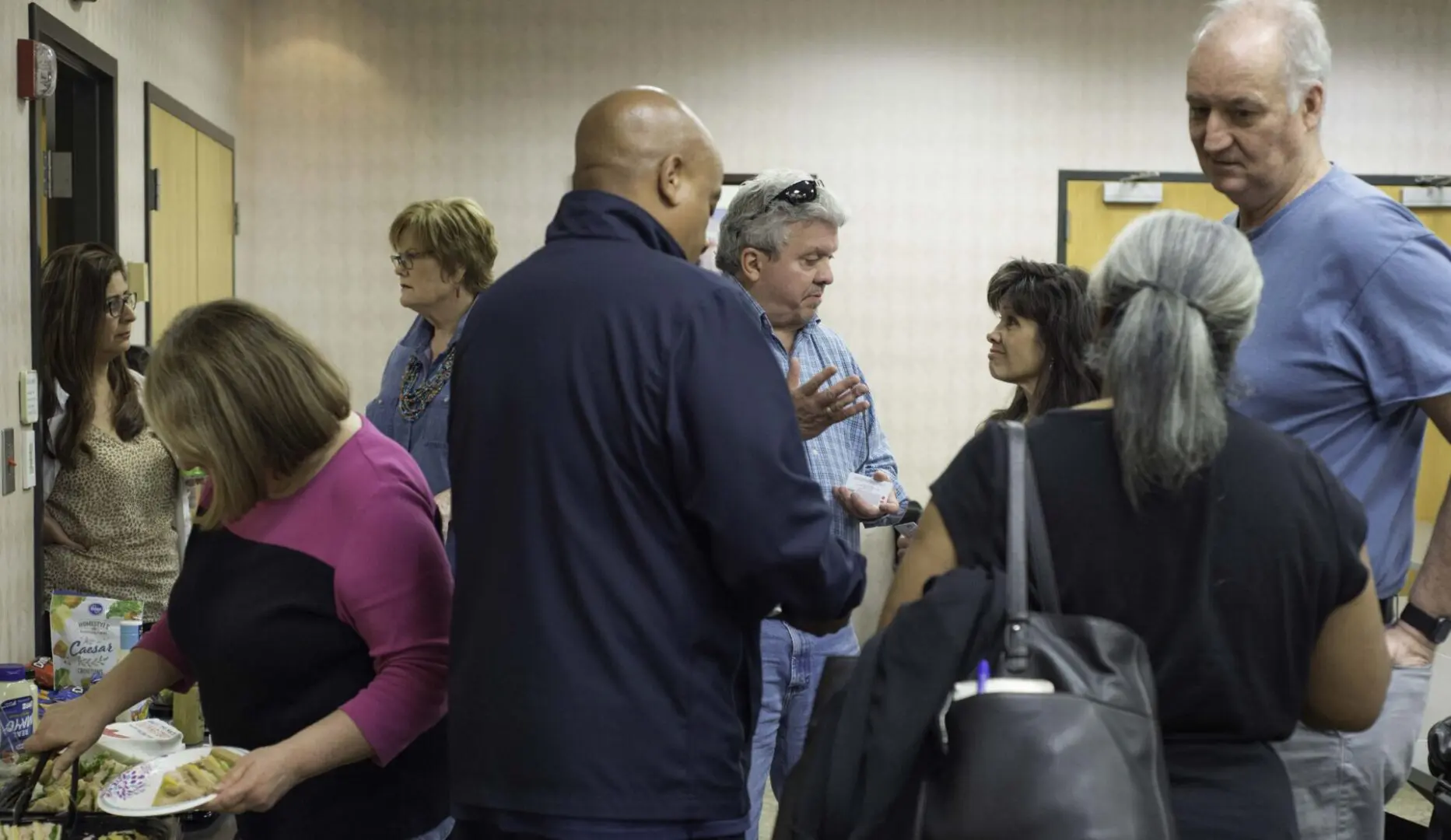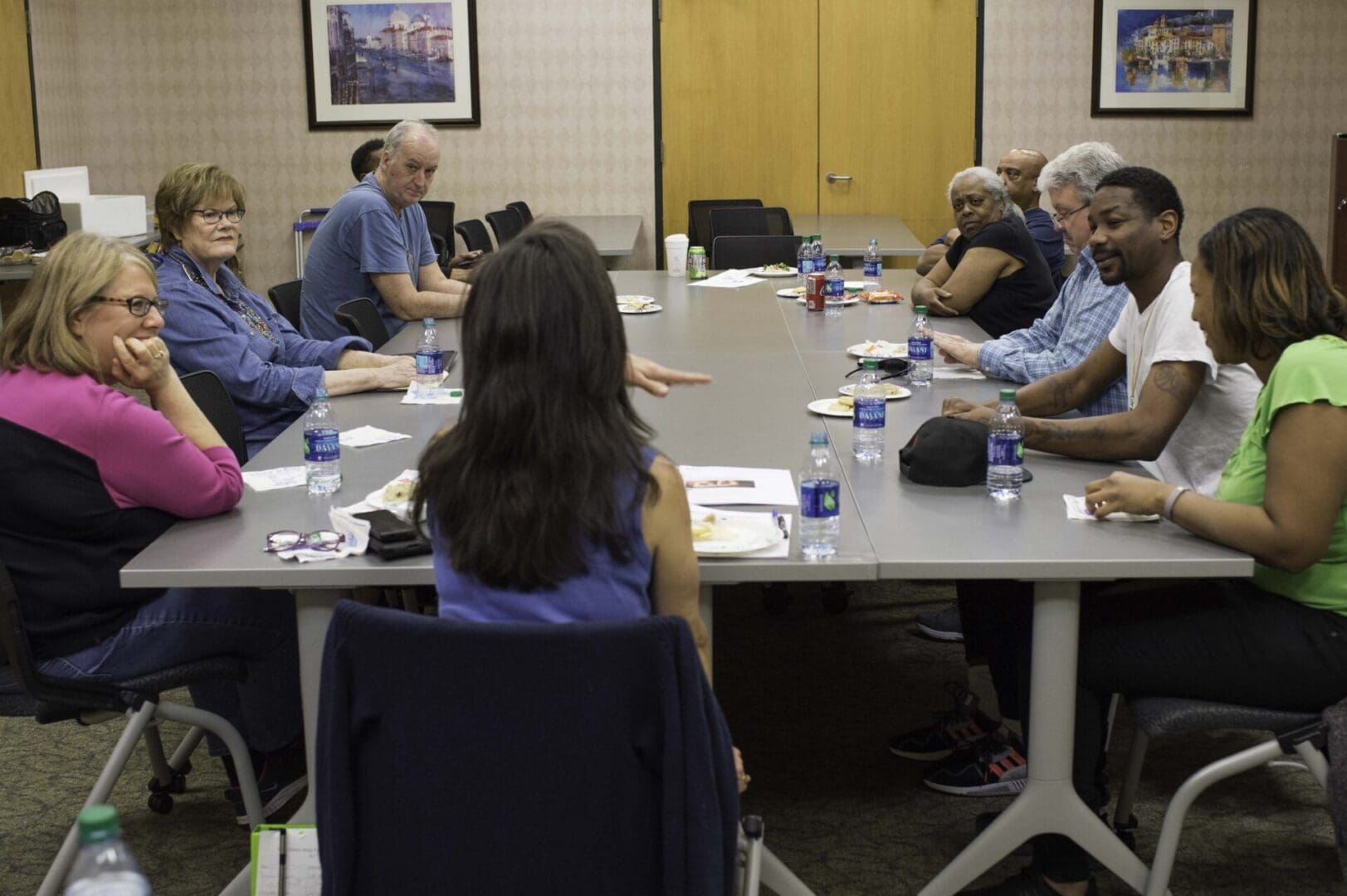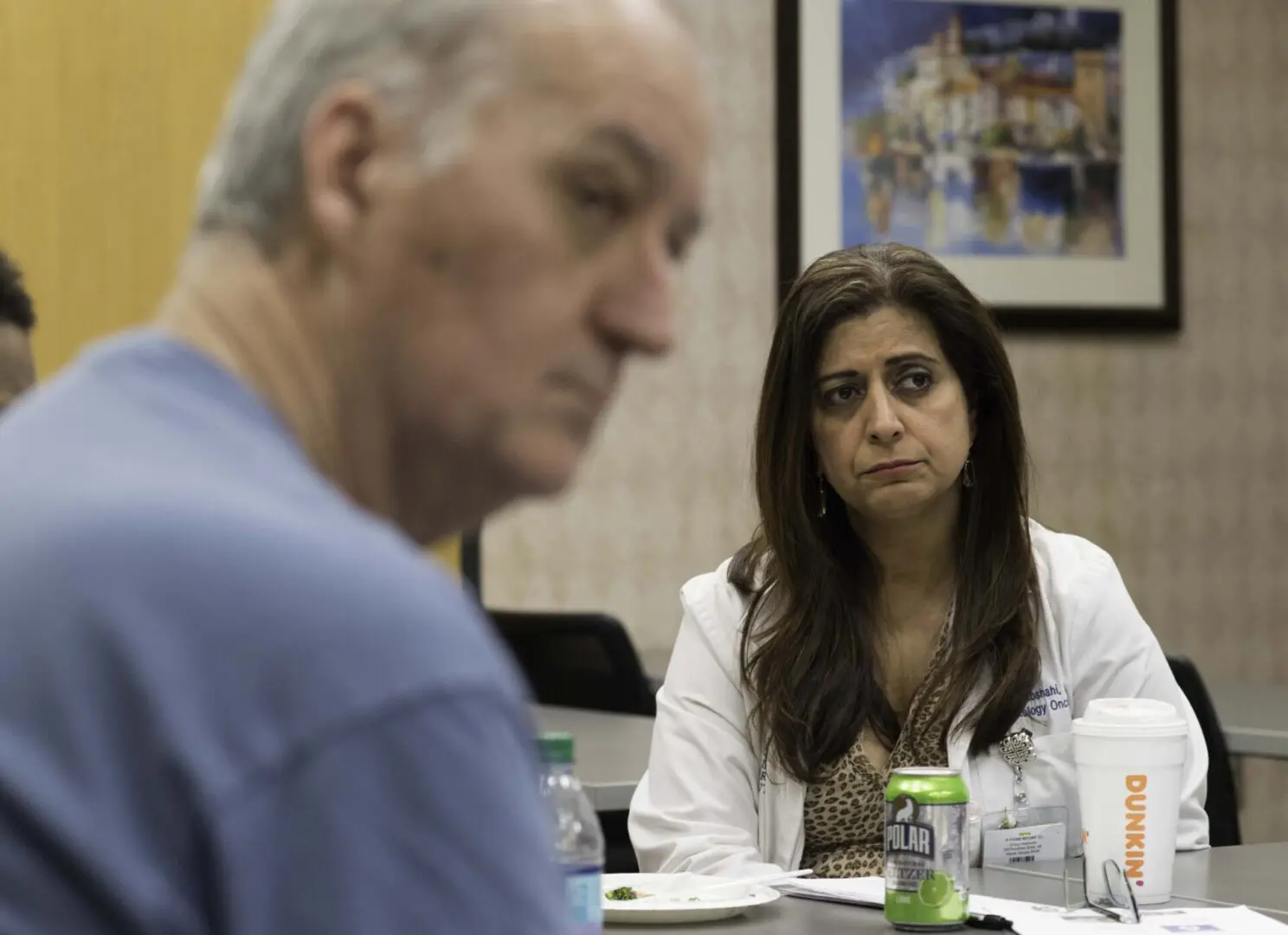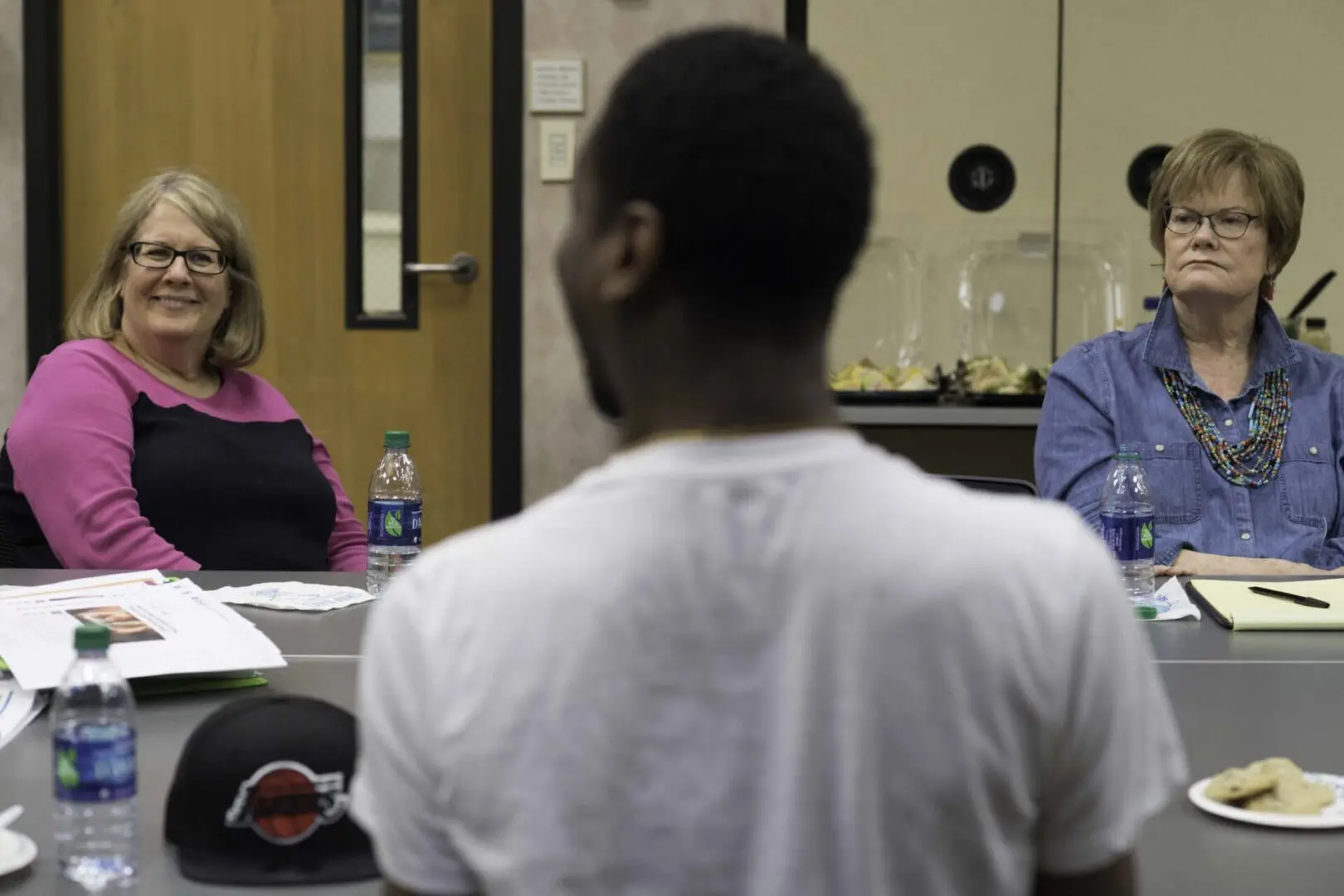Resources
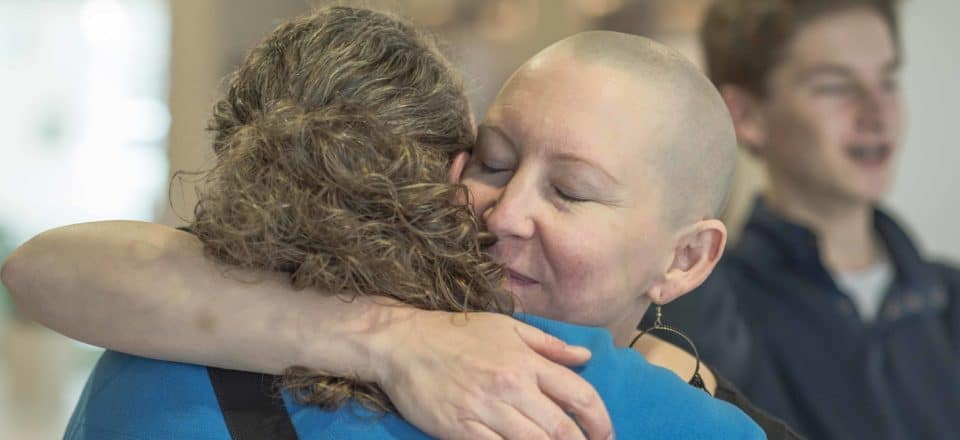
Who to Talk to, Who Will Listen
Educational and emotional support is vital when responding to the unsettling news of a brain tumor diagnosis. Giving a smile to another patient, sharing information about treatment options, and providing general overall support is what “group” meetings are all about. Where to turn for treatment, how to break the news to family, and who to talk with about feelings and questions are among the many needs which we face and can discuss with the group.
While brain cancer may seem to be a lesser-known, lesser-studied, and lesser-funded disease, there exists a worldwide cooperative involving brain tumor patient support, advocacy initiatives, informational organizations, and clinicians. The SBTF strives to provide educational and emotional support to those on this journey by providing information about support services or links to various organizations or sites through which you might garner that educational and emotional support.
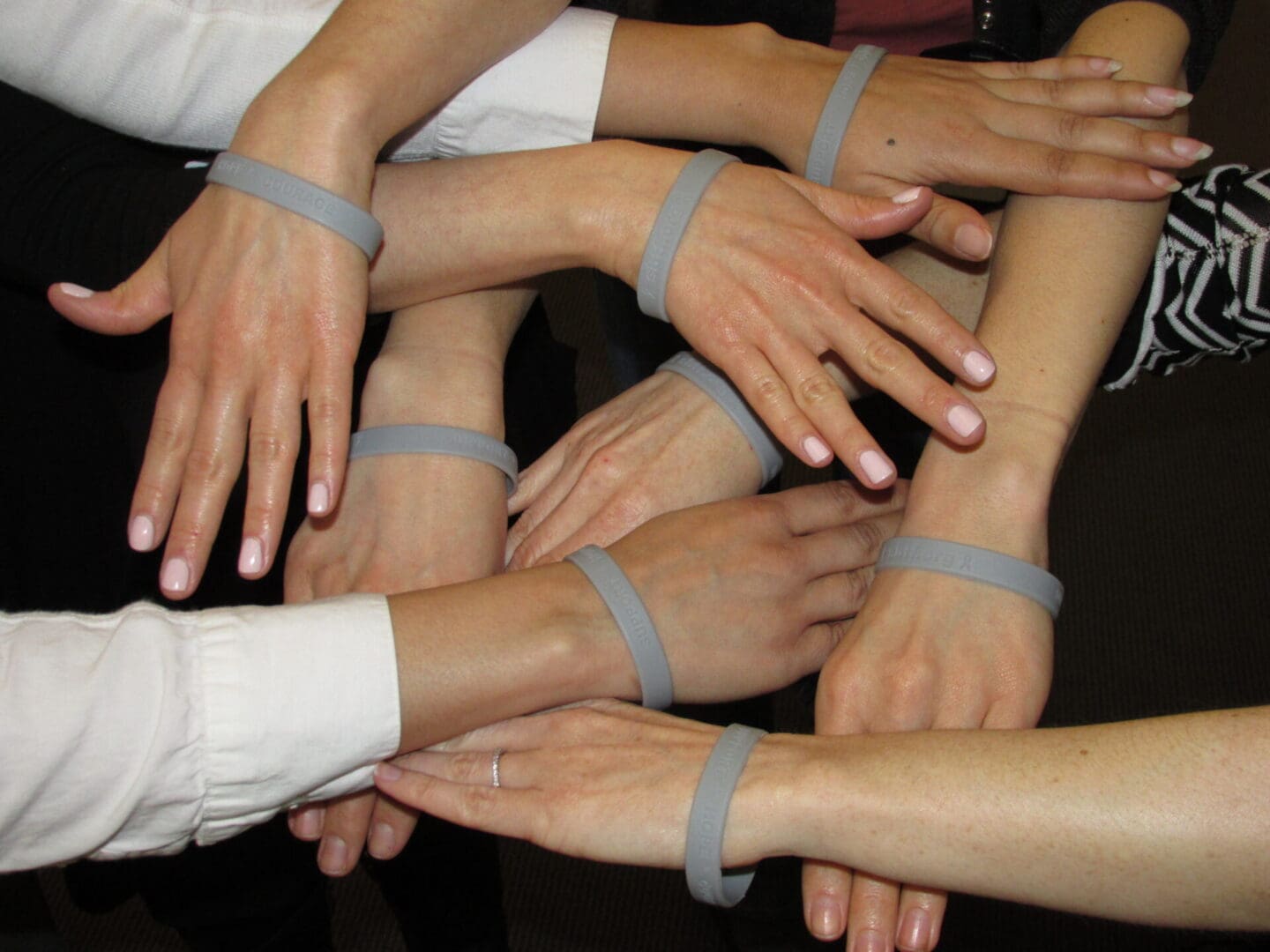
Support Groups
Throughout the year, the SBTF supports or hosts Brain Tumor Support Group meetings for patients, caregivers, friends, and families. These meetings provide an opportunity to share experiences, to learn about current therapies, and to receive information about various aspects of brain tumor diagnosis and treatment. Led by a Support Group Facilitator, the group setting allows individuals to share their experiences on the brain tumor journey, to ask questions, and to discuss progress. Topics will vary and a brochure, if available, will be posted in advance. Brain Tumor Support Group meetings provide an environment in which to discuss progress, treatments, and concerns with others who are going through the brain tumor experience. The information provided during the meetings is not intended to be a substitute for professional medical care or medical attention by a qualified practitioner.
The SBTF provides a listing of various brain tumor support group meetings in the Southeast; it does not provide recommendations or endorsements of specific physicians, medical institutions, products, procedures, or tests.
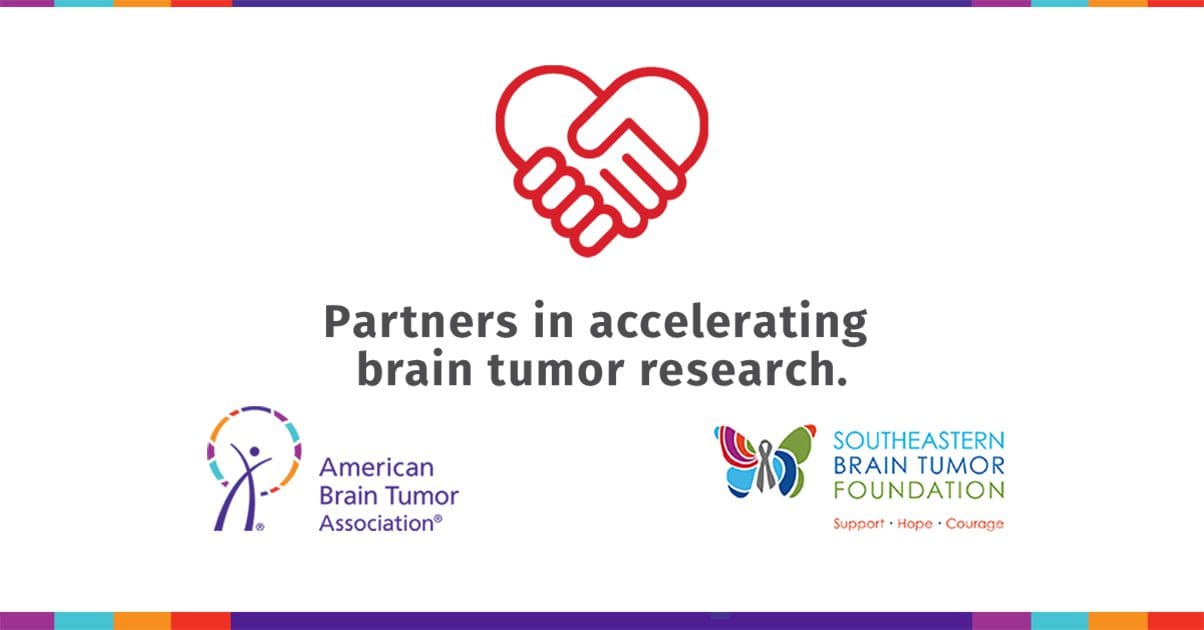
Find a brain tumor treatment center
When diagnosed with a brain tumor, you will be immediately presented with numerous decisions about your treatment and care. One of the important decisions you will mkae is choosing a brain tumor treatment center. Since brain tumors are considered a rare disease, treatment centers offer varying levels of brain tumor expertise and technology. It's important for you and your loved ones to evaluate treatment centers based on the care you may need.
The ABTA Treatment Center Guide provides detailed information about a variety of treatment centers, including the number of patients treated annually, technologies and specialized procedures offered, supportive services available, and more.
To further empower patients and their loved ones in making decisions that lead to better treatment and care, you can use these Guiding Principles for Central Nervous System Tumor Treatment Centers, as a resources for discussions with your healthcare team. *The Southeastern Brain Tumor Foundation was part of the working group to develop these Guiding Principles.
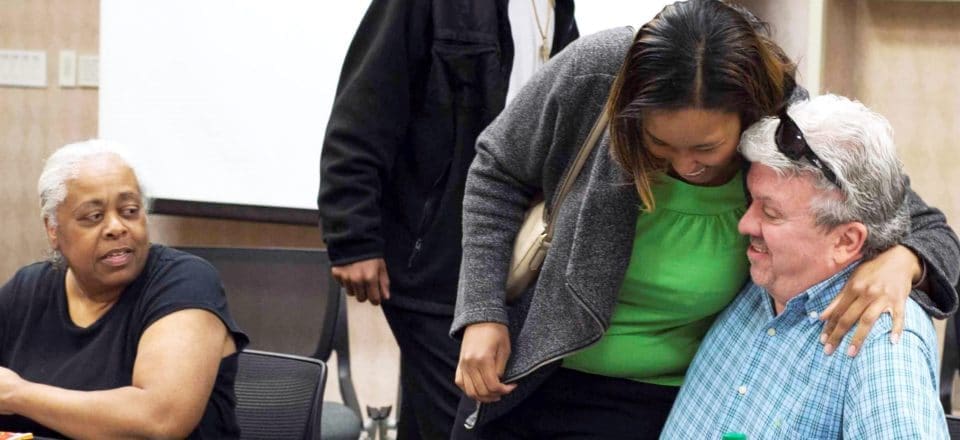
How To Help Me:
Developed by members of the Southeastern Brain Tumor Foundation Support Group as a resource for how friends can be of assistance to an individual or family coping with a diagnosis of a brain tumor.
Being of assistance to an individual is a wonderful gift. Being of assistance to a patient, who is unable to complete even the most routine of tasks, is priceless. Equally priceless is being of assistance to a patient caregiver. The brain tumor journey can be equally as daunting for both the patient and the caregiver and there are countless ways in which you can provide assistance to both.
First, start by making the statement “I want to help you” and complete the statement with something like “I have Thursday or Friday from 3:00 pm–6:00 pm available to come do laundry.” Follow that statement with the question “Which day works best for you?”
Believe it or not, the statement “I am available on X day” shows greater forethought and greater sincerity. It has far greater meaning than the statement “let me know if I can help.” If you truly want to be of help, rephrase your statement, and you’ll see what a difference a few words make. Below is a list of ways in which you can be of assistance to the patient and/or the caregiver:
- Transportation to medical appointments
- Sit with the patient while the caregiver takes a nap
- Massage / acupuncture
- Give me a manicure or pedicure
- Set up a schedule to make sure someone is always with me or checking on me
- Bring practical gifts, like fruit baskets or books instead of flowers
- Exercise with me
- Help me exercise my brain
- Picking up my mail and newspapers while I am getting treatment
- Pet sitting
- Babysitting
- Offer to strip the bed/change the sheets
- Offer to clean my house or offer to hire a maid
- Coordinate meals so all meals are not delivered at one time
- Schedule visits so that I am rested when you come to see me
- Bring me audiobooks
- Make me laugh
- Laugh with me
- Watch for my mood swings
- Rent videos for me
- Watch movies with me
- Accept my honesty
- Don’t try to “sugar coat” my feelings
- Don’t tell me that everything is going to be fine
- Be aware I may be immuno-suppressed, and don’t visit if you are sick

Jasper
INFORMATIONAL ARTICLES
The articles below are provided to share educational and informational information pertaining to brain tumors and brain cancers. Patients and caregivers should use your own judgement interpreting this information and should consult their health care professionals for medical guidance. Author Laura Vega BSN, RN is a medical writer specialized in content for the healthcare community.
Surgery can be a scary and nerve wracking event, especially brain surgery. Being mentally prepared and having some knowledge of what to expect will help you better understand the post-surgery process.
The typical hospital stay can be anywhere from 2-14 days depending on the patient. The length of the stay varies per person and is dependent on prior health status, location and size of the tumor resected, and possible side effects or “neurological deficits” after surgery. It is very likely that you will spend at least one night in the ICU and then be transferred to a less intensive level of care. After brain surgery the concern for swelling and bleeding requires close monitoring. This includes taking your vital signs and nurses performing “neuro checks” every 1-2 hours depending on the facility’s protocol and then progress to every four hours. These neurological assessments include assessing your mental status, level of alertness, and strength.
Whether the tumor is low or high grade you may experience the following after surgery:
- Generalized weakness or weakness on one side of the body
- Headache
- Difficulty with speech
- Poor balance, lack of coordination, or difficulty walking
- Confusion or forgetfulness
- Seizures
Although headache is normal and expected, you may not develop any of the listed above side effects. Some of these side effects may only last for a short amount of time although some will possibly last longer. Make sure that you communicate with your healthcare staff about the onset of any new changes that you develop.
While in the hospital, depending on your condition, your healthcare team will collaborate with you on whether any physical, occupational, or speech therapy is required either in a outpatient or short term rehabilitation setting. Your healthcare team will collaborate with you and help decide what your best plan for success is.
It is normal to be nervous and scared for this journey. Education and knowing what the hospital stay is all about can help ease that anxiety. If therapy is required, stay positive and work hard with therapy. Always keep in mind to be patient and kind to yourself throughout this process!
Aphasia is a language disorder that affects the ability to communicate and understand verbal and/or written language. Although it is most commonly found in stroke patients it can also occur in brain injuries and brain tumors.
People with aphasia have difficulty understanding others, expressing themselves or they may struggle with both. It is very common and natural for people with aphasia to become frustrated, angry, and depressed. Being trapped in your own mind and unable to communicate your needs, wants, and thoughts can feel hopeless.
Trying to determine what someone with aphasia is attempting to communicate can also be frustrating for their loved ones. Friends and family may sit there going around in circles while trying to figure out what the patient is saying and likely resulting in both people getting very frustrated and losing patience. When the person with aphasia becomes frustrated it becomes even more difficult for them to communicate. Below are some helpful tips in communicating and helping someone with aphasia communicate.
- Speak in short and brief sentences
- Use yes or no questions
- Do not ask open ended questions
- Slow down your speech and annunciate your words
- Communication board- single words or pictures to point
- Eliminate background noise
- Give them time to express themselves
- Celebrate moments that a person successfully expresses themselves
There are many speech therapy programs designed to work with aphasia patients. It may also be helpful to attend these sessions with your loved one in order to implement the methods used in therapy. The idea is to continue using these techniques at home in order to overcome or better manage aphasia. Providing support, communication training, and resources will help improve the quality of life of both person with aphasia and their loved ones.
INFORMATIONAL LINKS
The links below are provided for the purpose of listing other sources of educational and informational data pertaining to brain tumors and brain cancers. The inclusion herein of a link to another site does not imply endorsement of an organization by the Southeastern Brain Tumor Foundation. Patients and caregivers should use your own judgement interpreting this information and should consult their health care professionals for medical guidance.
www.anausa.org
600 Peachtree Pkwy, Suite 108
Cumming, GA 30041-6899
Phone: (770) 205-8211
Fax: (770) 205-0239
info@ANAUSA.org
www.abta.org
8550 W. Bryn Mawr Avenue, Ste 550
Chicago, IL 60631
(800) 886-2282
info@abta.org
eNewlsetter Mind Matters: https://www.abta.org/mindmatters
We exist to increase brain donation to advance science, leading to the treatment and cure of neurological, neuropsychiatric and neurodevelopmental disorders. We’re here to increase awareness for and simplify the process of brain donation.
Each year, more people than ever before are being diagnosed with neurological disorders. While tremendous progress is being made in biomedical research, there is so much more information that neuroscientists are working to discover. Breakthroughs in brain disease depend on studies using donated post-mortem human brain tissue. Since one brain can provide tissue for dozens – sometimes hundreds – of neurological studies, an individual brain donation is a highly valuable gift that almost anyone can make.
www.braintumornetwork.org
BTN’s mission is to aid brain tumor patients and care providers in the USA who seek personalized information about treatment options beyond, or in addition to, the standard of care. BTN can also assist in finding a treatment center or second opinion.
(844) 286-6110 (toll free)
www.braintumorkids.org
a.k.a. Georgia Chapter of the Pediatric Brain Tumor Foundation
6065 Roswell Rd. NE, Suite 505
Atlanta, GA 30328
(404) 252-4107
www.cancerfac.org
CFAC is a coalition of organizations helping cancer patients manage their financial challenges.
www.cancerhopenetwork.org
The Cancer Hope network provides individual support to cancer patients and their families by matching them with trained volunteers who have undergone and recovered from a similar cancer experience.
www.CancerQuest.org
Emory University
Winship Cancer Institute
1365B Clifton Rd. NE, Suite B4100
Atlanta, GA 30322
This is a website that provides easy-to-understand answers to difficult questions about the biology of cancer — including brain tumor.
cancerquest@emory.edu
www.cancerresearch.org
Cancer Research Institute
National Headquarters
One Exchange Plaza
55 Broadway, Suite 1802
New York, NY 10006
(800) 99-CANCER (800-992-2623)
(212) 688-7515
non-profit organization working to conquer cancer through immunology. Visit Cancer Immuno-therpay tab for glossary of terms, clinical trial finder, and patient and other resource information.
www.cancervive.org
Helps cancer survivors overcome the challenges of “life after cancer”. In addition to support groups, they provide educational materials, insurance information and assistance, and advocacy.
www.caringinfo.org
Caring Connections provides people with information and support when they are planning ahead, caring for a loved one, living with an illness, or grieving a loss. Caring Connections, a program of the National Hospice and Palliative Care Organization (NHPCO), is a national consumer and community engagement initiative to improve care at the end of life. Since 2004 Caring Connections has provided more than 1.3 million advance directives to individuals free of charge.
www.caringbridge.org/
Free personalized websites that support and connect loved ones during critical illness, treatment, and recovery. The site allows visitors to post encouraging messages and support on individualized password-protected websites.
www.cbtf.org
274 Madison Avenue, Suite 1301
New York, NY 10016
(212) 448-9494
Fax: (212) 448-1022
Toll-free Patient Support Line: (866) 228-HOPE
info@cbtf.org
a forum created by Meningioma Mommas
for anyone interested in brain tumor advocacy
Register at http://www.meningiomamommas.org/board/
www.cancer.emory.edu
Emory Brain Tumor Program
www.neurosurgery.emory.edu/BTP/index.htm
Emory University
Atlanta, GA
www.epilepsyidaho.org/seizure.htm
Seizure Recognition and First Aid
www.fodac.org
FODAC provides over $8 million each year in equipment and services to the community at little or no cost to recipients. FODAC is a 501(c)3 and does not have direct funding from Medicare/Medicaid for the services offered. Most equipment is issued for a suggested donation but some services have mandatory fees.
www.theibta.org
A not-for-profit organisation registered in England and Wales! The IBTA advocates for equitable patient access to brain tumour therapies, encourages the establishment of brain tumour support groups in countries where they don’t yet exist, and raises awareness of the challenges of this devastating disease. The IBTA also provides links to various “trial” sites both here and abroad – http://theibta.org/clinical-trials-registry/.
Cancer Support for Adolescents and young adults.
This is an online support group set up for survivors, parents, professionals, and anyone who is interested in medullo blastoma or pnet brain tumors.To subscribe, write to medulloblastoma-subscribe@onelist.com
www.aphasia.org
PO Box 87
Scarsdale, NY 10583
www.braintumor.org
22 Battery Street, Suite 612
San Francisco, CA 94111-5520
Patient Line: 1-800-934-CURE
Business Line: (415) 834-9970
Fax: (415) 834-9980
nbtf@braintumor.org
nciconnect@mail.nih.gov ph (240) 760-6530
Connects patient, providers, researchers, and community organizations in partnership pertaining to care and treatment of rare brain and spine tumors.
According to the Social Security Administration, there are over 8 million disabled workers in the United States. These workers often face challenges such as stereotyping, discrimination, and a lack of accommodations. Thankfully, there are a variety of legal protections and employment resources available that help people with disabilities overcome these challenges and advance their careers.
https://www.resumebuilder.com/comprehensive-resume-and-career-guide-for-people-with-disabilities/
www.cancer.duke.edu/btc
Duke Comprehensive Cancer Center
Durham, NC
www.theibta.org
PO Box 244, Tadworth
Surrey, UK KT20 5WQ
chair@theibta.org or kathy@theibta.org
Visit the Social Security website to learn more about filing for Social Security Disability: http://www.socialsecurity.gov/disability/index.htm
Various United States clinical trial sites:
Virtual Trials: http://www.virtualtrials.com/clinical_trials_finder.cfm
Clinical Trials.gov: https://www.clinicaltrials.gov/
Center Watch: http://www.centerwatch.com/
Patients Like Me: http://www.patientslikeme.com/clinical_trials



